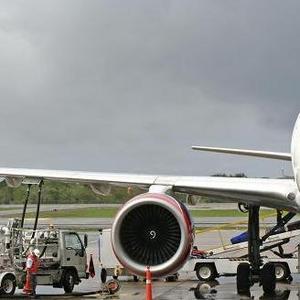Amyris to supply biojet fuel to GOL Airlines in new partnership

October 30, 2013
BY Amyris Inc.
Amyris Inc., a leading renewable fuels and chemicals company, and GOL Linhas Aereas Inteligentes S.A., the largest low-cost and low-fare airline in Latin America, announced the signing of a memorandum of understanding that could pave the way for GOL commercial flights to use Amyris renewable jet fuel in 2014. The anticipated partnership was announced during the first commercial flight with a renewable jet fuel in Brazil by the airline this month.
“GOL is committed to making commercial aviation more efficient and sustainable,” said Adalberto Bogsan, vice president of GOL. “Our experimental flight with renewable jet fuel at the Rio+20 in 2012 was an important step to guide our work. Today, we
advance one more step.”
Advertisement
Under the memorandum of understanding, GOL and Amyris will work together to establish a framework for bringing Amyris renewable jet fuel produced from Brazilian sugarcane to GOL's commercial flights following regulatory approvals and validation by standard-setting bodies, including ASTM International and Brazil's Oil, Gas and Biofuels Agency (ANP).
The partnership, under of auspices of the Brazilian Biofuels Platform, an industry and government-supported initiative to encourage the use of renewable fuels in aviation, was announced at Brazilian Aviation Day celebration, which included participation of Brazil's Secretary of Civil Aviation, Minister Moreira Franco, and a number of industry stakeholders including Brazilian Airlines Association (ABEAR), Brazilian Biodiesel and Biojet Association (UBRABIO), GE, and Boeing among others.
“GOL supports all initiatives to help make Brazilian aviation more sustainable,” said Paulo Kakinoff, president of GOL. During this past year, the airline's fuel-saving initiatives have helped it to reduce greenhouse gas emissions by more than 30,000 tons.
Lifecycle analysis indicates that the Amyris renewable jet fuel could reduce greenhouse gas emissions by 80 percent or more when compared to convention fossil-derived jet fuel. Amyris has applied for certification under the Roundtable of Sustainable Biomaterials and is a member of Bonsucro, the world's leading sugarcane sustainability standard.
Advertisement
“We are committed to working with the aviation industry to bring cleaner skies, starting in Brazil in 2014,” said John Melo, Amyris’ president and CEO. “Following two successful demonstration flights and a series of successful tests with multiple industry stakeholders, we look forward to receiving ASTM validation and ANP approval of our breakthrough renewable jet fuel produced from Brazilian sugarcane.”
Amyris operates a production facility, located adjacent to the Paraiso sugarcane mill in Brotas, Sao Paulo in Brazil, to convert sugars into a renewable hydrocarbon, farnesene, which can be processed into a drop-in renewable jet fuel compliant with Jet A/A-1 specifications following regulatory and industry approvals.
During 2013, GOL completed a number of projects and has established even more solid partnerships. In September, GOL participated in the launch of the Ceus Verdes do Brasil Project (“Brazilian Green Skies” in Portuguese), which aims to improve the efficiency of Brazilian airspace. And here, GOL makes history by being the first airline to make a commercial flight with a renewable jet fuel in Brazil.
Related Stories
Bangkok Airways Public Company Limited has officially announced the adoption of sustainable aviation fuel (SAF) on its commercial flights, reinforcing Thailand’s green aviation industry. The initiative took effect starting July 1, 2025.
Avalon Energy Group LLC and Sulzer Chemtech have signed a strategic alliance and partnership agreement to scale up the production of SAF. Under the agreement, Avalon has selected BioFlux technology for its portfolio of SAF projects.
Neste and DHL Express have strengthened their collaboration with the supply of 7,400 tons (9.5 million liters) of neat, i.e. unblended, Neste MY Sustainable Aviation Fuel to DHL Express at Singapore Changi Airport starting July 2025.
CoBank’s latest quarterly research report, released July 10, highlights current uncertainty around the implementation of three biofuel policies, RFS RVOs, small refinery exemptions (SREs) and the 45Z clean fuels production tax credit.
The U.S. Energy Information Administration maintained its forecast for 2025 and 2026 biodiesel, renewable diesel and sustainable aviation fuel (SAF) production in its latest Short-Term Energy Outlook, released July 8.
Upcoming Events










